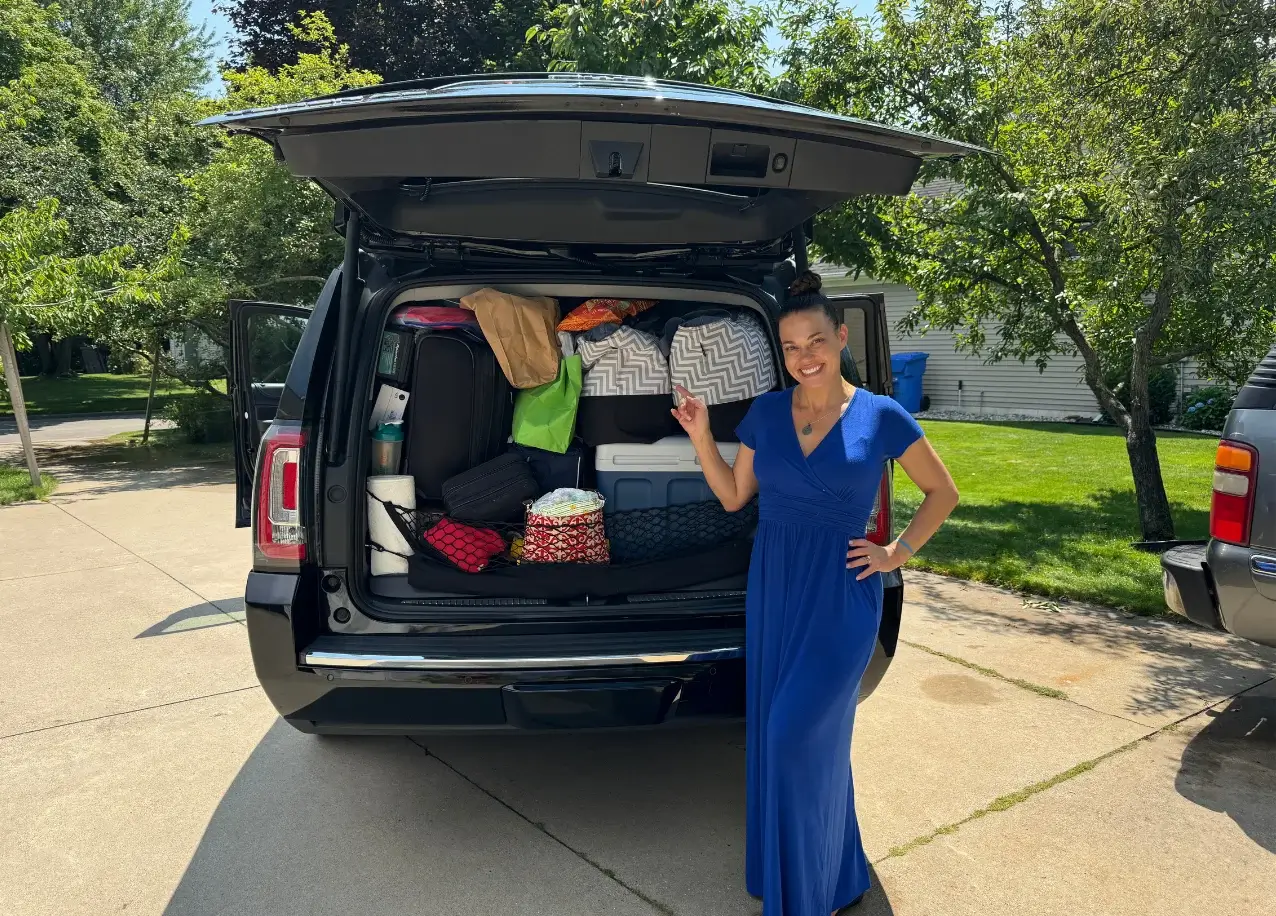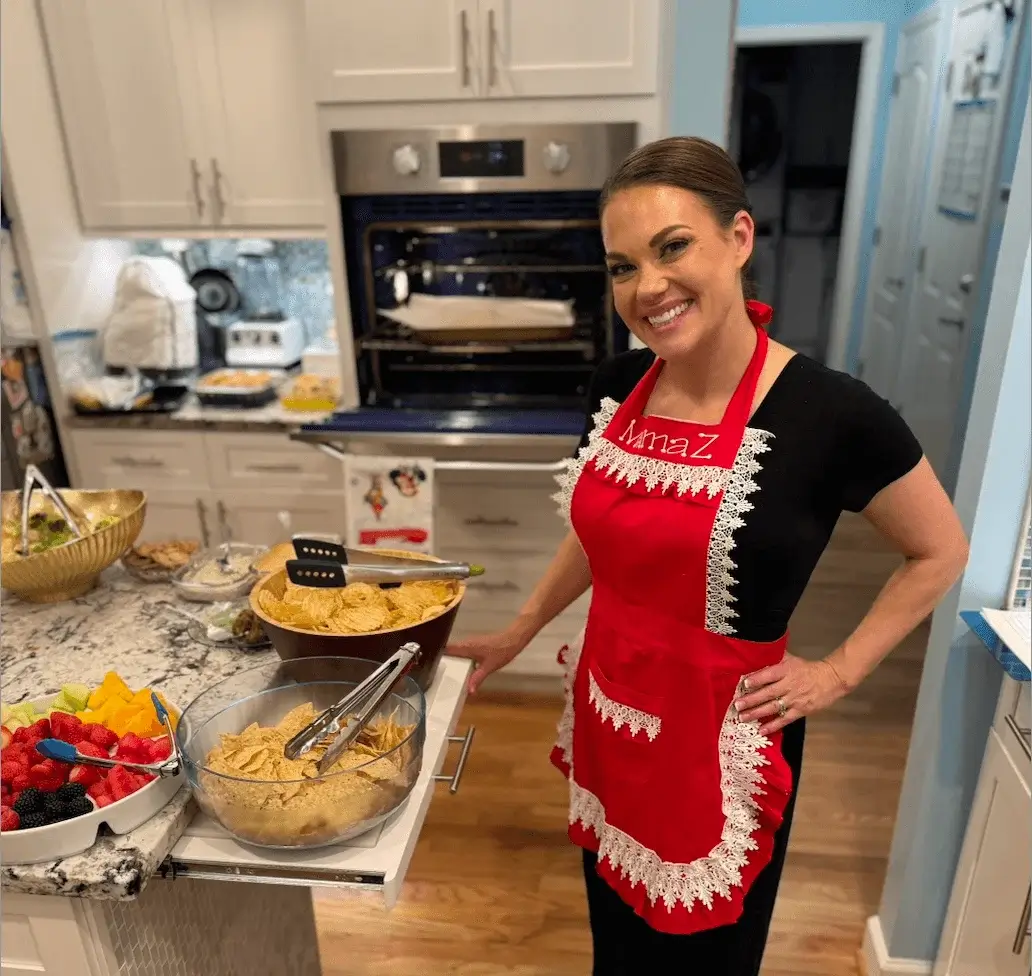To say that I was horrified when I first watched the news, would be an understatement. In this article, I will provide the back story about how and why we got involved with (Un)Well Netflix series, clarify statements that were taken out of context, and offer my sincere apologies for making an insensitive comment.
Never would I have agreed to be part of such a blatant “hit piece” against multi-level marketing, and a misrepresentation of the essential oils industry as a whole. Unfortunately, my wife and I were grossly misrepresented in Episode 1, and we’ve received a considerable amount of backlash and negative press for it.
Table of Contents
The Backstory
And we know that in all things God works for the good of those who love him, who[a] have been called according to his purpose.
~ Romans 8:28
Truth be told, we prayed earnestly about this opportunity to be featured on the (Un)Well Netflix series and sought out counsel from our mentors and pastors. We felt like we got the “green light” so we jumped in with innocence and excitement that this could be a new vehicle to spread our Bible health message.
And, yes, in spite of the negative press we received and hate mail, I am blessed to have had the opportunity to share my healing testimony in Christ, to pray with my family and to be filmed at church worshipping our Lord and Savior. We believe that God’s going to use this opportunity for good and we invite you join us in praying that the film will inspire millions and help encourage people who are seeking solutions for their health problems to consider aromatherapy.
When we were first presented with the opportunity to be part of the “documentary” in 2019 (we weren’t notified of the name at the time), we were skeptical and unsure if we, and the essential oils industry, were going to be represented fairly, so we didn’t immediately agree to be interviewed. Having supposedly discovered me online because my bestselling book, The Healing Power of Essential Oils, was a top-ranking hit on essential oil searches on Google, the documentary team claimed that they had the utmost respect for my work and acknowledged that I was an authority voice in the field.
I actually recommended that they interview essential oils safety expert Robert Tisserand, or my aromatherapy mentor Sylla Sheppard-Hanger from the Atlantic Institute of Aromatherapy because they are more qualified than I to teach about essential oils because they’ve been in the industry longer than I have been alive! The documentary team reassured me that they wanted to interview me as a “new,” “fresh” face of the industry, but I can see now that was not true. After watching the film, it’s clear that they chose me because of my success online, which ultimately became the focal point of our interview and what they were certain to include in the documentary.
An “Unbiased” Look At Natural Health
The film team assured me that the (Un)Well Netflix series was going to be an “unbiased” look at the natural health industry: giving “both” sides equal voice to represent their opinions. “Both” sides meaning the supporters of natural medicine, and the naysayers or critics. I was assured that my role was to represent the scientific community, to teach about essential oils, and to represent what the peer-reviewed research really says about using essential oils for therapeutic purposes. So my wife and I agreed to be featured in the movie.
However, this was under false pretenses.
Recently, one of the documentary team members revealed their true motive(s) to The Guardian, “There’s a lot of conflicting information and misinformation out there, and there’s not a lot of hard data and testing is done,” she said, “We felt like it was the perfect time to look at this industry that’s blowing up and try and help to sort out some of the fact from the fiction.”
Though, I would argue that’s not true in regard to essential oils. Hundreds of human trials have been conducted testing the therapeutic efficacy of using essential oils for everything from arthritic pain to anxiety, from reducing hypertension to soothing the symptoms of IBS and SIBO, and easing feelings of depression. Additionally, there are thousands of pre-clinical studies, both animal and in vitro (cells in a petri dish), evaluating how aromatherapy can potentially help with more serious conditions like Parkinson’s disease and cancer.
I cannot speak to other modalities discussed in the series (breast milk, bee stings, tantric sex, fasting or ayahuasca), but I can speak on behalf of research supporting essential oils for chronic disease: the very subject of our next book coming out next year (Harmony, September).
To be part of the film, we were required to film a masterclass and were forced to pay all of the expenses related to our local film crew coming over to the house for several hours, as well as hair and make-up, so the documentary crew could film us recording a class and capture my wife on camera “behind the scenes,” getting her make-up done. The documentary team specifically asked us to teach about using essential oils for chronic disease, plant sustainability, and fair trade. We honored their request and the documentary crew filmed at our home over the course of 2 ½ days: following us to church, seeing a “day in the life” of the Z’s, and, of course, conducting the main interview
The Interview
Unfortunately, I don’t have the full interview at my disposal, but going off memory and confirming with my wife who was present for most of the interview, below are some thoughts.
First off, the apologies. And, yes, there are apologies! I misspoke about one thing, and I made an insensitive comment about another.
Sincere Apology
I would like to offer my humble apologies for making an insensitive statement about how anyone can afford our classes, “Even people on food stamps,” I said, if people, “Stopped buying Starbucks for two weeks.”
When I watched the documentary for the first time, my heart sank when I heard this come out of my mouth. I forgot I even said this. In context to the full story, I was speaking from experience – having been on food stamps for more than three years while earning my doctorate trying my best to provide for my wife and two children. Unfortunately, the context in which my statement was said was cut from the documentary and taken out of context.
Still, there’s no excuse for making an insensitive comment like that. And, for this, I sincerely apologize.
What triggered me to make this statement was that I felt like the interviewer was attacking my character, because she challenged me for price-gouging people by charging $77 for our signature essential oils masterclass. I was taken aback because, as far as we are still aware, we charge the least of anyone on the market who offers a comparable masterclass. In fact, when you look at comparable products that the most popular aromatherapy schools and health influencers sell online, the going rate for these types of courses is $250 – $1000, and we’ve had multiple firms and marketing agencies tell us over the years that we need to charge more money.
But that’s not our mission. Our mission is not to make a lot of money off of a few people. Our goal as a business is to earn a fair profit by selling affordable products to as many people as possible.
Mary Magdalene
One other comment I made that requires correction was my reference to the woman, Mary of Bethany, who washed Jesus’ feet with her hair using spikenard, an essential oil extract. Regrettably, I misspoke and referred to her as Mary Magdalene.
I have received quite a bit of correction on social media for my gaffe, for which I apologize.
Can Essential Oils Cure Cancer?
In their defense, one thing the documentary crew always told me from the beginning was that the film was intended to be “controversial.” They let me know they were interested in hearing my perspective on ingesting oils, using oils for cancer, etc.
The interesting thing about this part of the interview was that the interviewer kept challenging me about whether I thought essential oils could “cure” cancer. She wanted a definitive “yes” or “no” answer, but I wouldn’t give her one because the topic is much more complicated. If you’d like to learn more about how I view essential oils as a potential treatment for cancer patients, please review my report, Truth About Essential Oils for Cancer here. It is important to note that we have known several people, personally and professionally, that have told us emphatically that essential oils have “cured” them of cancer. We cannot confirm or deny what our friends and colleagues believe, but who are we to say they are lying?
It is a well-known fact that essential oils contain specific chemopreventative and chemotherapeutic properties, and you can learn all about them in Tisserand and Young’s Essential Oil Safety: A Guide for Health Care Professionals 2nd Edition. This textbook is the universally-accepted reference guide for many aromatherapy schools across the globe.
Please note, we are NOT claiming “miracle” cures, nor have we in the past, but as we discuss in our upcoming book, using essential oils can play a pivotal role in a cancer patient’s healing journey; especially in regard to symptom-based management, and mitigating the side effects of medical interventions like chemotherapy and radiation. Unfortunately, most of what I said was cut out of the documentary, and my comment about cancer was taken out of context.
Are Essential Oils Safe to Ingest?
The interviewer also questioned about whether or not it’s safe to ingest essential oils. This being one of the most controversial topics in the industry, I was expecting this question. I referred to the common practice of using EOs in the food and flavoring industry and explained that the main issue is really all about “dosing” (this part, unfortunately, got cut out of the film). The FDA has granted dozens of aromatic constituents and essential oils GRAS status (Generally Recognized As Safe) to be used in food and drinks.
Traditional aromatherapy, multiple aromatherapy schools and certification courses globally agree: as long as you follow max oral dosage guidelines, it is very safe to ingest essential oils, and you can learn all about these dosing guidelines in Tisserand and Young’s Essential Oil Safety: A Guide for Health Care Professionals 2nd Edition.
These dosing guidelines are the very basis for the recipes that we include in our masterclasses and books. Unfortunately, all of this was cut out of the documentary, and my comment about ingestion was taken out of context.
We Run a Multi-7-Figure Company
Now to the most controversial part of all. And the part that has caused us so much grief.
This is the part of the interview that I should have known something was awry. Looking back, I should have stopped the interview right there and not entertained the interviewer any longer as she quickly shifted the conversation to our “financial success.” But I was concerned that refusing to answer would be included in the final cut. I’m sure you’ve seen documentaries roasting people for not answering comments, right? It’s often portrayed as an admission of guilt. So, I put on my best smile and tried to be as positive as possible.
Referring to our “big” home (we live in a modest 5-bedroom home that fits our family of 7 comfortably in the suburbs of Atlanta – certainly not a mansion, and one that costs a fraction of what our friends in California would pay for a similar home), she started to question our motives for what we do and how we can justify our apparent “massive” success online. She challenged my character by eluding to the fact that we are profiteering off of peoples’ desperation to get healthy, and I got defensive and ultimately said the very things that she wanted me to say. The things that ended up in the film that were completely taken out of context.
After challenging me repeatedly about our income, I let the interviewer know that we have built a multi-seven-figure business. I also went on to explain how we employ 15 people around the globe, have recently donated $50,000 to the Independent Cancer Research Foundation to celebrate the launch of our first essential oils masterclass, and we have also donated tens of thousands of dollars’ worth of our products to people and organizations in financial need.
Additionally, we offer FREE screenings of all of our classes to the public all year round. We’ve been blessed with the opportunity to provide free screenings of our classes to nearly 750,000 people since 2015. And, thousands of people watched our free screenings over and over again.
An important side note here: just because our company generates more than a million dollars per year, doesn’t mean that our “take home” pay is that much. Like any business, we carry significant overhead and do not “net” millions of dollars.
Unfortunately, all of this was cut out of the documentary and my statement was taken out of context.
I feel it’s important to point out that it’s not a sin to be successful, or to earn money. We give God all the glory for whatever success we may have achieved over years: whether making $45,000 as a bank manager (true story) or running our current company.
I was raised by hard-working, blue-collar middle-class American parents who did what they needed to put food on the table and have our basic needs met. I didn’t come from a wealthy background and I know what it’s like to not have a lot of money. In fact, while I was earning my doctorate in chiropractic, we were on Government Food Stamps and racked up a considerable amount of consumer debt just to make ends meet. Not to mention the student loans that I had to take out to pay for tuition and get through my clinicals.
I’m not complaining, nor do I feel entitled to anything. I’m just stating a fact that I decided to invest in my career at a great cost, and I don’t feel it’s appropriate to defend myself for running a successful business.
With that said, I’m always open to discussion and suggestions as to how we can maximize our charitable donations, support those in need, and help the world with as much free content as possible. This, by the way, has been the M.O. of our business from day one, which is why our blog offers so much free content without paid ads like you’ll see on most mainstream media sites.
Multi-Level Marketing Companies
Like I said above, never would I have agreed to be part of the (Un)Well Netflix series if we knew that it would turn out to be such a blatant “hit piece” against multi-level marketing, and a misrepresentation of the essential oils industry as a whole. Some of our closest friends and colleagues are distributors for the top two MLM companies that were featured in the film, and we have the utmost respect for our friends and colleagues.
At one point, the interviewer asking me about my feelings about multilevel marketing. To which I replied that:
I admire reputable network marketing opportunities as a wonderful business opportunity for people who don’t have the capital to start their own business, front the cost for inventory and manage a team. Truth be told, where else can you get an opportunity to start your own business for just a few hundred or a couple thousand dollars?
Ask any business owner who has ever started a legitimate business (brick and mortar, or online), and they will tell you it generally takes several thousand, if not tens of thousands of dollars, to start a business. I’m not talking about a blog or podcast or something. Those can be done on the cheap. I’m referring to a business that sells physical (or even digital) products.
If you are selling your own product, especially physical goods, it can take several months and several thousand dollars just to get a product to market. Let alone the costs of manufacturing, packaging, warehousing, shipping, maintaining enough inventory, and so many other things that a multi-level marketing representative never has to worry about.
Yes, it’s unfortunate that not everyone who participates makes money in networking marketing, but how many start-ups fail? A lot. And, we’ve had our fair share of failures along the way as well, so we can truly emphasize.
Are the two MLMs mentioned in the movie “illegal pyramid schemes” as indicated in the movie? I’ll let the network marking companies under attack here fight their own legal battles, but suffice it to say I find it very interesting that two, multi-billion dollar companies would be permitted to run their business after all these years if they truly were pyramid schemes. There’s definitely more to the story here, and (again) it’s hard for me not to see this as a hit piece against MLM as a whole.
Bottom line: the way in which the network marketing representative in the movie and the two major EO companies were represented was not fair, and our thoughts and prayers go out to all of our colleagues who have to now deal with the backlash of this irresponsible reporting.
Final Thoughts
All in all, I consider this a very real lesson learned. Don’t trust movie producers, don’t trust mainstream media and streaming services, always think twice or three times before you say anything in front of a camera and always make right what you do wrong.
Thank you for hearing me out, and I wish you all of God’s blessings on your life.
~ Dr. Eric Zielinski (“Dr. Z”)









